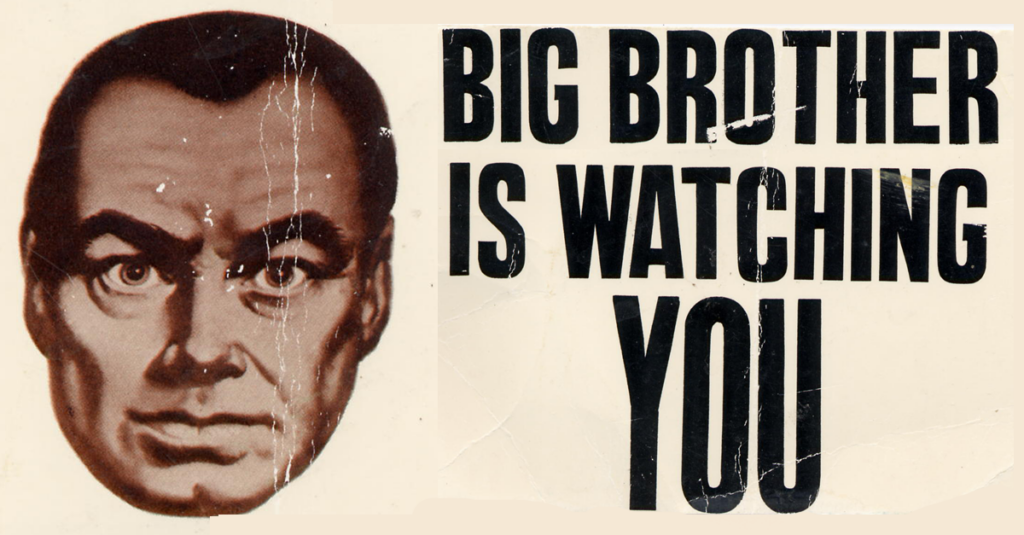November 27, 2017
What No One Wants To Tell You About Privacy
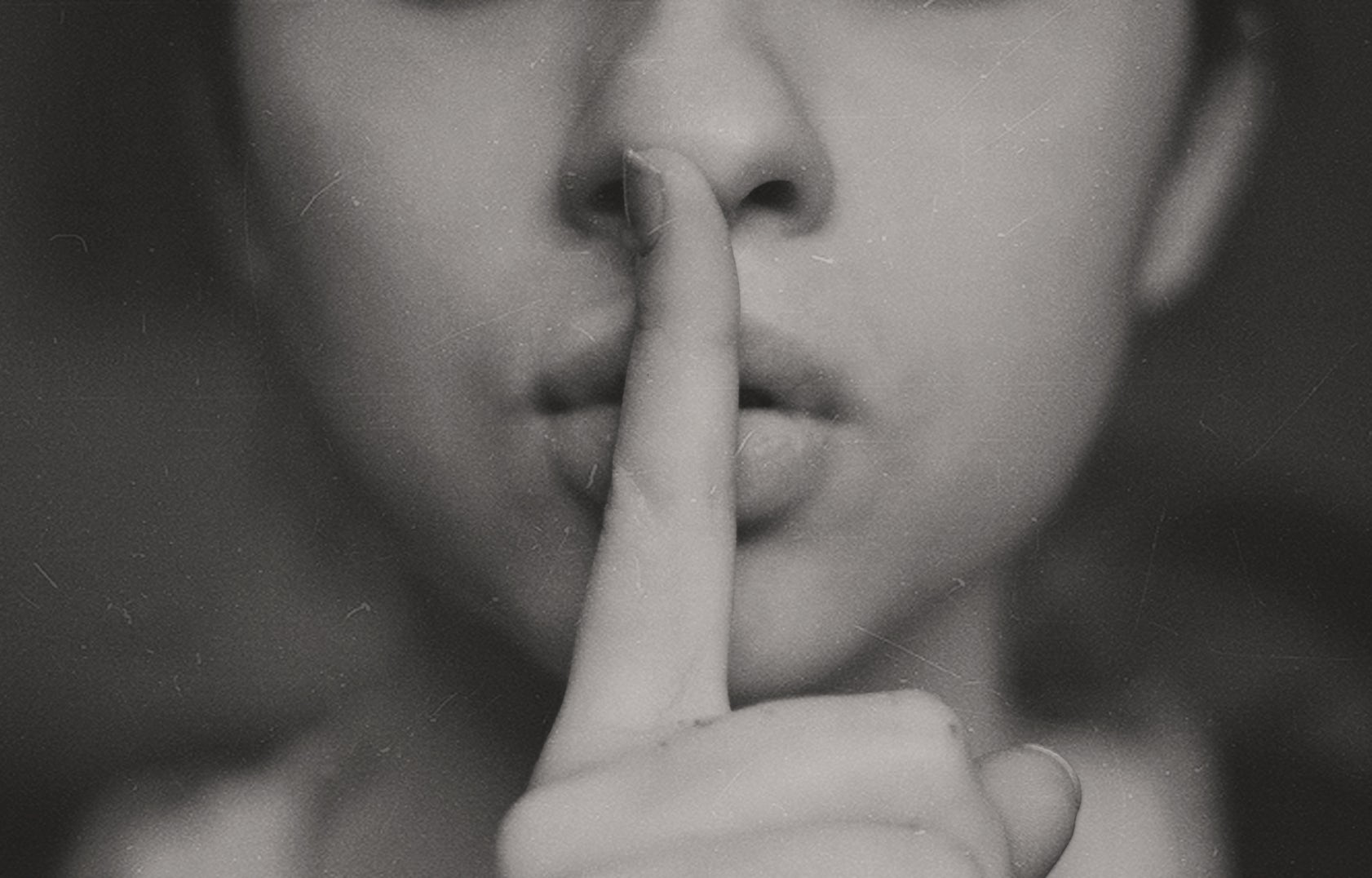
Is Privacy Really Dead?
If privacy is, it’s because we killed it.
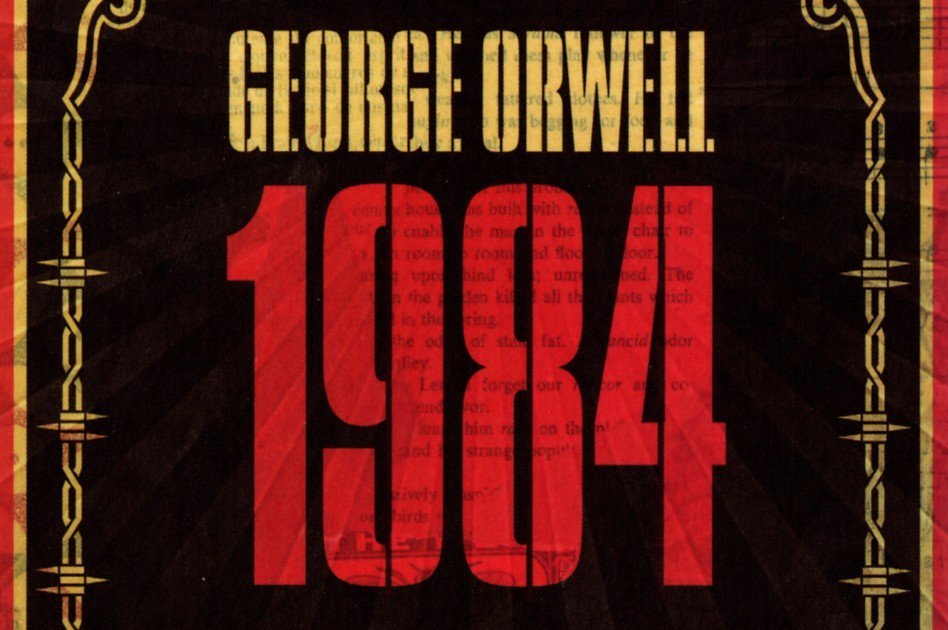
In George Orwell’s 1984, Winston Smith wrestles with oppression in Oceania, a place where the Party (government) scrutinizes human actions with an ever-watchful Big Brother.
The citizens ‘right to privacy’ was abolished – forced to conform to the overall message of Big Brother. There was no choice, conform or be punished.
As technology advances in today’s society, the increase in levels of security has followed. Security has taken a step in the right direction for the most part when it comes to developing a new more improved way of making sure your information is secure. So when over 38 major data breaches have happened so far this year – why doesn’t this seem true?
The biggest difference between the deprivation of privacy in 1984 and today’s society is simple. We haven’t had our privacy taken away, we’ve given it away for the pleasure of convenience.
The State of Privacy
Privacy is a state of being free to act as yourself without judgement or disruption. To be who you are without the observation of other people. It is not to deceive, but more born from the feeling insecurity in embarrassing consequences.
You wouldn’t want someone to see you dancing wildly in your living room, nor would you want someone to hear you singing terribly in the shower. It’s not that it is bad or wrong, but it’s embarrassing.
With the growing amount of users using centralized services online, the intimacy of information being shared is expanding as well. Opening up a new line of possible public humiliation.
This can be seen in the development of the first ‘digital pill’. A version of the antipsychotic Abilify has been modified to respond to a smartphone app – sending information on whether the medication was taken to your doctor and chosen individuals.

Although voluntary, the technology is still likely to prompt questions about privacy and whether patients might feel pressure to take medication in a form their doctors can monitor.
Ameet Sarpatwari, an instructor in medicine at Harvard Medical School told The New York Times the digital pill “has the potential to improve public health. [But] if used improperly, it could foster more mistrust instead of trust.”
This carries a concern that this is a step towards punishing patients who don’t comply. With actions or behaviour being monitored, some could be taken out of context – leading bits and pieces of information to be being amalgamated into something else.
A health insurer who had access to this information, for example, may make pre-judgments as to the standing of your qualifications. Although not spoken to directly, the information gathered through these digital drugs can be used when examining rates for said individual.
While secrecy is the intent to hide information from someone or a group of people, privacy is being free from being monitored or disturbed.
It’s the reason that we close the door when going to the bathroom. It’s not that it’s a secret, but some things are better left in private.
But what happens when you’re not the one giving the information?
A study from Google and UC Berkeley examined the variety of ways accounts are compromised.
Data collected shows that 80-percent of all the phishing kits observed targeted usernames, passwords, and geolocation; followed by phone numbers and device details. The study lasted a year, from March 2016 until March 2017, and explained it was determined that phishing posed the greatest threat because of this, followed closely by keylogging.
The information being collected by these attacks have become more valuable than ever as consumers turn to the internet to replace everyday tasks. More and more people are looking to online banking, to purchase groceries through an app, and book transportation electronically.
Although you can delete that compromising photo from college off of your Facebook page, or that embarrassing WhatsApp message that maybe you shouldn’t have sent – the digital or electronic footprint will always remain.
According to data collected by VPN Mentor via the U.S. government – Identity Theft is the largest cybercrime concern in the U.S.
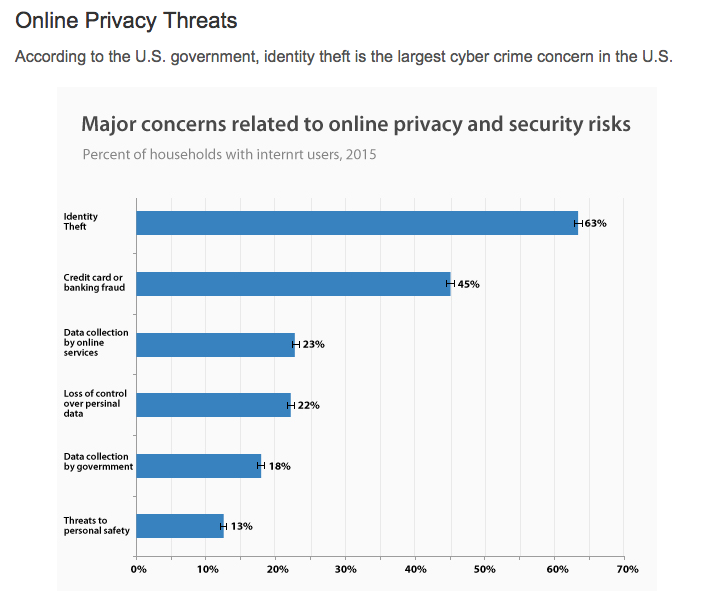
Everything from what you bought your mother for her birthday, what show you’re currently obsessed with, to what websites you visit on a daily basis can be used to unconsciously influence your behaviour.
Whenever you provide details about yourself or your habits, you leave a footprint of electronic information that cannot be destroyed. This allows companies and individuals to assume certain aspects of your life.
Advertisers use this method often – by hyper personalizing their ads to specific audiences they are able to influence the decision making process in their favour.
Instead of showing you what you NEED to see, advertisers show you what they believe you WANT to see based off of the previous behaviour. Creating assumptions and barriers around a certain topic unconsciously.
So what is there to worry about?
With the concept of hyper-personalization growing in the marketing world, privacy has developed into a strategy to protect against potential “loss of reputation”.
Privacy (when used properly) can provide the ability to restrict the amount of information shared, thus ‘controlling’ some of the information and opinions others have about you.
On a small scale, it can be easier to stop the flow of misinformation between a limited amount of people. Our sense of shame takes over and we think about the implications of our actions towards the individual.
Groups are bigger and more developed, and because our gut-level sense of shame is only effective in a small scale – in larger collectives we need to actively disassociate from the situation to truly think about the implications to ourselves and others.
Adding in to the fact that one individual can belong to several groups with conflicting norms – and the willpower needed to disassociate increase drastically.
According to the PEW Research Center, 86% of people who actively use the internet are now taking active steps to improve their internet privacy.
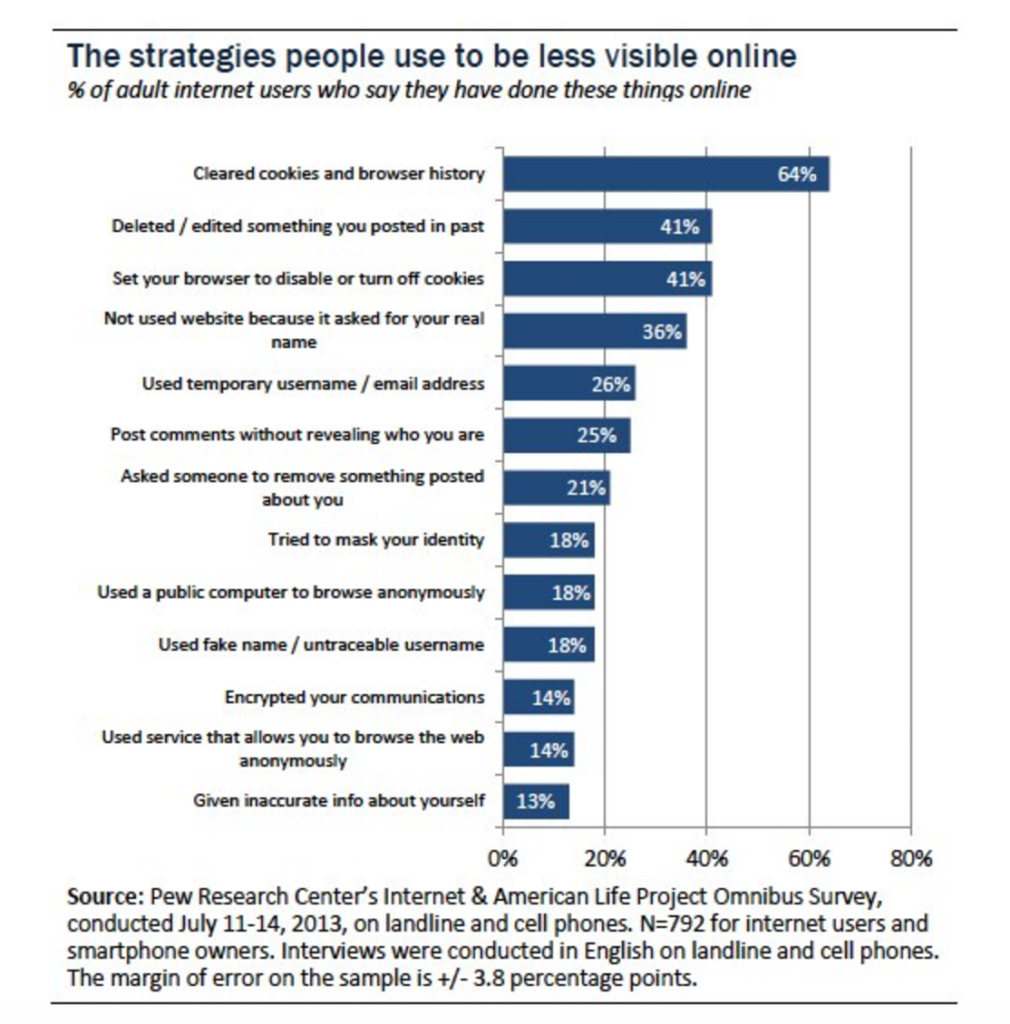
Still, 59% of internet users do not believe it is possible to be completely anonymous online, while 37% of them believe it is possible.
Most people want to remain anonymous online but have realized that it is nearly impossible. Although actively taking these steps to secure their identity online, 1 in every 4 Millennials is fine with sharing some of their personal information so they can receive advertising that is relevant to them.
As well as 56% of Millennials stated that they would share their current location to receive coupons or discounts in return.
As the user, you have no visibility over how much information you’re giving up, and how those services use them. And as you give it away bit by bit, you gradually lose your sensitivity.
So are we really that concerned about our privacy?
It’s not having other people know this information that scares us, but it is what is being done with it. It’s why we have curtains on our windows and doors on our rooms.
We killed our own privacy by not asking questions and taking the time to understand what is being done with our information. We sacrificed our information for the pleasure of conveniently being able to do almost anything, or in exchange for free services that we believe we need.
None of these companies are entirely to blame for the broken state of the internet and what information it has (though they are to blame for taking advantage of it).
It’s important for people to be aware of how their information is being used. We actively need to think about the choices of what we share and what we may want to remain absolutely private. Taking proactive steps to not understand why we need to remain private, but how.
It’s time to take back the right to our own privacy, to ask the hard questions and to take the time to understand what we are signing up for. If we continue to ignore the underlying consequences of our ignorance – 1984 may turn out to be non-fiction after all.
Had George Orwell been alive today, he would undoubtedly remind us,
“Big Brother is watching.”
